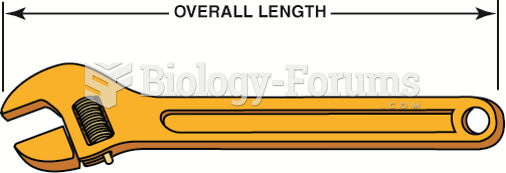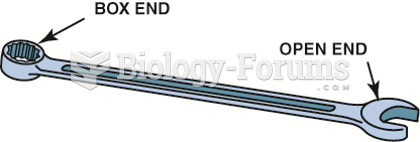|
|
|
Cucumber slices relieve headaches by tightening blood vessels, reducing blood flow to the area, and relieving pressure.
Famous people who died from poisoning or drug overdose include, Adolf Hitler, Socrates, Juan Ponce de Leon, Marilyn Monroe, Judy Garland, and John Belushi.
Every flu season is different, and even healthy people can get extremely sick from the flu, as well as spread it to others. The flu season can begin as early as October and last as late as May. Every person over six months of age should get an annual flu vaccine. The vaccine cannot cause you to get influenza, but in some seasons, may not be completely able to prevent you from acquiring influenza due to changes in causative viruses. The viruses in the flu shot are killed—there is no way they can give you the flu. Minor side effects include soreness, redness, or swelling where the shot was given. It is possible to develop a slight fever, and body aches, but these are simply signs that the body is responding to the vaccine and making itself ready to fight off the influenza virus should you come in contact with it.
The B-complex vitamins and vitamin C are not stored in the body and must be replaced each day.
Increased intake of vitamin D has been shown to reduce fractures up to 25% in older people.
 A wrench after it has been forged but before the flashing (extra material around the wrench) has ...
A wrench after it has been forged but before the flashing (extra material around the wrench) has ...
 An adjustable wrench. Adjustable wrenches are sized by the overall length of the wrench, not by how ...
An adjustable wrench. Adjustable wrenches are sized by the overall length of the wrench, not by how ...





